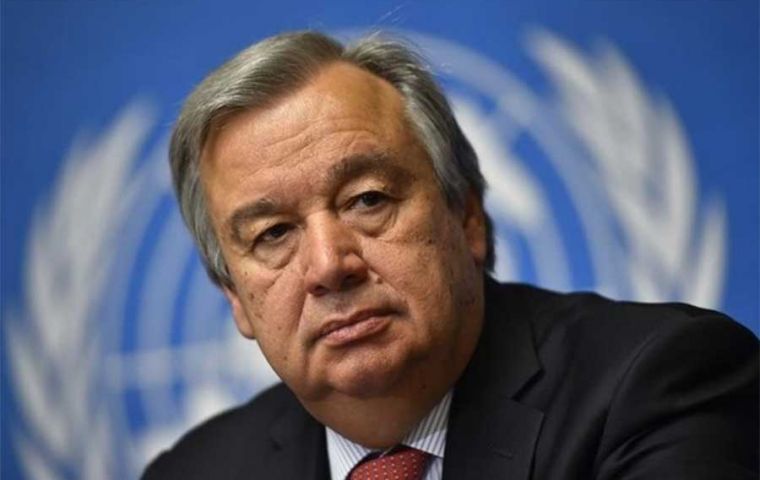MercoPress. South Atlantic News Agency
World Scientists call on health authorities to declare climate change a global health emergency
 “Without nature, we have nothing,” UN Secretary General Antonio Guterres had said last year.
“Without nature, we have nothing,” UN Secretary General Antonio Guterres had said last year. Scientists from across the world collectively called for the UN, world leaders, and health authorities to address climate change and biodiversity loss as one global health emergency.
The report published by more than 200 health journals urged the World Health Organization (WHO) to declare the climate and nature crisis a singular crisis to be tackled together to avoid catastrophe. Among the leading titles around the world include the BMJ, the Lancet, JAMA, the Medical Journal of Australia, the East African Medical Journal, the National Medical Journal of India and Dubai Medical Journal.
These issues will be separately discussed at upcoming United Nations (UN) conferences — the 28th UN Conference of the Parties (COP) on climate change in Dubai in November and the 16th COP on biodiversity in Turkey in 2024.
The research communities associated with the two COPs are largely separate. However, they concluded in a 2020 joint workshop that there was a need to tackle both together.
“Only by considering climate and biodiversity as parts of the same complex problem … can solutions be developed that avoid mal adaptation and maximize the beneficial outcomes,” they had said then.
At a time when climate change is set to overtake deforestation and other factors as the leading cause of nature loss, scientists say it's absolutely crucial to understand the interconnection of the natural world.
”Without nature, we have nothing,“ UN Secretary General Antonio Guterres had said last year.
These crises impact human health directly and indirectly, affecting essentials like food and water and increasing risks like extreme weather and disease, the report said. The possible direct impact of exacerbating poverty would lead to mass migration and conflict, according to experts.
The health effects of climate change and biodiversity loss are likely to be experienced disproportionately by vulnerable communities — calling attention to the need to address both environmental and social inequalities.
In December 2022, the biodiversity COP committed to conserving 30% of global land, coasts, and oceans by 2030. The developed world pledged US$ 30 billion annually to aid other countries, echoing previous climate COP commitments.
Yet many of these promises have not been met, pushing the world toward ”tipping points”. Restoring biodiversity and tackling climate change as one crisis is the only way forward, the report emphasized.




Top Comments
Disclaimer & comment rulesCommenting for this story is now closed.
If you have a Facebook account, become a fan and comment on our Facebook Page!